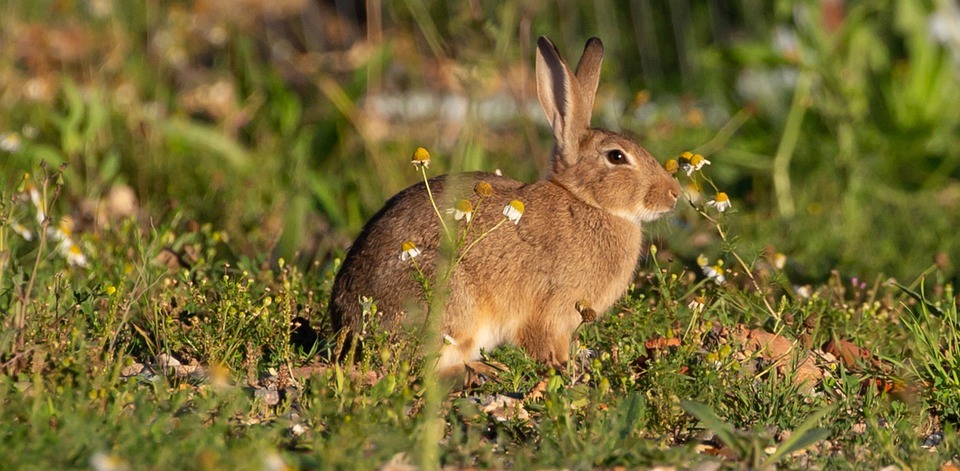This comprehensive guide will delve into the world of rabbit nutrition, highlighting the foods that are strictly off-limits for these adorable furry companions. We'll explore why these foods are dangerous, the symptoms of poisoning, and how to ensure your rabbit enjoys a healthy and happy life.
Part 1: Understanding Rabbit Nutrition

1.1. The Importance of a Balanced Diet
- Rabbits are Herbivores: Their digestive system is designed to process plant matter, not meat or processed foods. A balanced diet is essential for their health and well-being.
- Fibre is Key: Rabbits require high-fibre diets to maintain a healthy digestive system and prevent dental problems. Fibre helps keep their digestive tract moving and encourages natural wear of their teeth.
- Avoid Overfeeding: While rabbits need a consistent supply of food, overfeeding can lead to obesity, which increases the risk of health problems.
1.2. The Cornerstone: Hay
- Hay as the Main Food Source: Hay should make up 80-90% of a rabbit's diet, providing essential fibre for a healthy digestive system and dental wear.
- Best Choices: Timothy hay, meadow hay, and oat hay are excellent choices for adult rabbits. Alfalfa hay is high in calcium and protein, making it suitable for growing bunnies, pregnant females, and nursing mothers.
- Fresh and Unlimited: Offer fresh hay at all times, ensuring your rabbit has access to it throughout the day. Store hay in a dry, well-ventilated area to prevent spoilage.
1.3. Fresh Vegetables: A Valuable Addition
- Supplementing the Diet: Fresh, leafy green vegetables should make up 5-10% of a rabbit's diet, providing vitamins, minerals, and antioxidants.
- Variety is Key: Offer a variety of safe vegetables to ensure a balanced diet. Examples include:
- Dark leafy greens: Kale, spinach (in moderation), collard greens, dandelion greens, mustard greens.
- Cruciferous vegetables: Broccoli, Brussels sprouts, cauliflower, cabbage.
- Other safe options: Bell peppers, carrots (in moderation), cucumber, zucchini, parsley, cilantro.
- Introduce Gradually: When introducing new vegetables, offer small amounts and monitor your rabbit for any signs of digestive upset.
1.4. The Role of Pellets and Treats
- Pellets: High-quality rabbit pellets should be offered in limited quantities, providing supplemental nutrients. Look for pellets that are low in sugar and high in fibre.
- Treats: Fresh herbs such as parsley, cilantro, dill, and basil can be given as occasional treats, offering flavour and nutritional benefits. Avoid giving sweet treats like fruits or commercial rabbit treats, as they are high in sugar and can be detrimental to your rabbit's health.
Part 2: The Dangers of Toxic Foods

2.1. Fruits: Sweet But Risky
- High Sugar Content: Fruits are high in sugar, which can cause digestive problems and obesity in rabbits.
- Unsafe Fruits: Avocados, apricots, cherries, grapes and raisins, peaches and nectarines, plums, and citrus fruits are all toxic to rabbits.
- Moderation for Safe Fruits: If you do offer fruit, choose safe options like bananas, blueberries, strawberries, and melon in very small amounts and only as occasional treats.
2.2. The Perils of Vegetables
- Avoid Iceberg Lettuce: Iceberg lettuce lacks nutritional value and can cause digestive problems in rabbits.
- Spinach and Rhubarb: Spinach contains oxalates that can bind calcium and interfere with its absorption, while rhubarb contains oxalic acid, which is toxic to rabbits.
- Onions, Garlic, and Leeks: These vegetables contain thiosulphate compounds that are toxic to rabbits, causing damage to red blood cells and leading to anaemia.
- Potatoes: Raw potatoes contain solanine, which is toxic to rabbits.
2.3. Human Foods: A Strict No-Go
- Chocolate: Chocolate is toxic to rabbits, containing theobromine, which can cause serious health problems.
- Sweets and Cakes: These foods are high in sugar and can lead to obesity, dental problems, and other health complications.
- Processed Foods: Chips, crisps, and other processed snacks are high in salt and fat, contributing to health problems.
- Dairy Products: Milk, cheese, and yoghurt contain lactose, which rabbits cannot digest properly.
- Nuts and Seeds: While some seeds can be beneficial, large quantities of nuts and seeds can lead to digestive issues.
- Bread and Grains: These foods are high in carbohydrates and can cause digestive upset and obesity.
2.4. Beans and Legumes: A Potential Issue
- High Fibre Content: Beans and legumes are high in fibre, which can cause bloating, diarrhoea, and gas in rabbits.
- Avoidance is Key: It's best to avoid feeding beans and legumes to rabbits altogether.
Part 3: Recognizing the Symptoms of Food Poisoning
3.1. Common Signs of Toxicity
- Gastrointestinal Distress: Vomiting, diarrhoea, gas, and bloating are common symptoms of food poisoning in rabbits.
- Lethargy and Weakness: Rabbits may become lethargic, weak, and reluctant to move.
- Loss of Appetite: A significant decrease in appetite is a sign of distress.
- Changes in Urine: Dark urine or blood in the urine can indicate a serious health issue.
- Seizures: In severe cases, rabbits may experience seizures.
- Drooling: Excessive drooling can indicate oral irritation or poisoning.
- Changes in Behaviour: Behavioural changes such as hiding, aggression, or excessive grooming can be signs of discomfort or illness.
3.2. The Importance of Prompt Veterinary Care
- Immediate Action: If you suspect your rabbit has ingested a toxic food, contact your vet immediately.
- Time is of the Essence: Early intervention is crucial for the best chance of recovery.
- Provide Information: Tell your vet about the suspected toxic food, the amount ingested, and the time of ingestion.
Part 4: FAQs
4.1. Can rabbits eat lettuce?
- Limited Quantities: While some types of lettuce are safe for rabbits, such as romaine lettuce, they should be offered in moderation due to their low nutritional value and high water content. Iceberg lettuce is not recommended due to its lack of nutrients and potential for digestive issues.
4.2. Can rabbits eat carrots?
- Occasional Treats: Carrots can be given as occasional treats, but they are high in sugar and should not be a staple of a rabbit's diet.
4.3. What can I do if my rabbit has eaten something toxic?
- Contact Your Vet: The most important step is to contact your vet immediately.
- Gather Information: Provide your vet with information about the food your rabbit ate, the amount, and the time of ingestion.
- Follow Vet's Instructions: Follow your vet's instructions carefully regarding treatment, including possible medication or dietary changes.
4.4. Can rabbits eat bread?
- Absolutely Not: Bread is high in carbohydrates and sugar, making it extremely detrimental to a rabbit's health. It can lead to obesity, dental problems, and other health complications.
4.5. Can rabbits eat fruit peels?
- No, Not Usually: Fruit peels often contain pesticides or other chemicals that can be harmful to rabbits. It's best to avoid offering fruit peels and stick to the edible flesh.
4.6. Can rabbits eat nuts?
- No, Not Recommended: Nuts are high in fat and can cause digestive issues and obesity in rabbits.
4.7. What is the best way to introduce new foods to my rabbit?
- Gradual Introduction: Start with small amounts of new foods and observe your rabbit for any signs of adverse reactions. If your rabbit seems to tolerate the food well, you can gradually increase the amount offered.
4.8. Can rabbits eat herbs?
- Safe Options: Certain herbs are safe for rabbits in moderation, such as parsley, cilantro, dill, and basil. However, avoid herbs like chives, garlic, and onions, which are toxic.
4.9. Can rabbits eat grass?
- Safe and Beneficial: Fresh grass is a safe and healthy treat for rabbits, providing fibre and nutrients. However, ensure the grass is free of pesticides and herbicides.
4.10. Can rabbits eat flowers?
- Exercise Caution: Some flowers are safe for rabbits, but many are toxic. Consult a veterinarian or rabbit-specific resource for a list of safe and unsafe flowers.
4.11. What should I do if my rabbit is showing signs of illness?
- Seek Veterinary Attention: If your rabbit shows any signs of illness, such as lethargy, loss of appetite, diarrhoea, or changes in behaviour, consult a veterinarian immediately.
Everyone is watching
-

Do Rabbits Lay Eggs? (The Surprising Truth)
OTHER TYPES OF PETSThis article will unravel the common misconception that rabbits lay eggs, exploring the fascinating world of r...
-

What's a Group of Rabbits Called? (A Comprehensive Guide)
OTHER TYPES OF PETSThis article delves into the fascinating world of rabbits, exploring the various terms used to describe a grou...
-

Can Rabbits Eat Grapes? A Guide to Safe Rabbit Treats
OTHER TYPES OF PETSThis comprehensive guide will explore the safety and suitability of grapes for rabbits, providing detailed inf...
-

Predators That Hunt Rabbits: A Guide to Natural Enemies
OTHER TYPES OF PETSI've always been fascinated by the circle of life, that delicate dance between predator and prey. Growing up ...
-

Are Rabbits Nocturnal Animals?
OTHER TYPES OF PETSThe question of whether rabbits are nocturnal animals is a fascinating one, with a surprisingly complex answer...
